Petunias are beautiful and popular flowers that come in a variety of colors and patterns. They are often used in gardens, hanging baskets, and containers to add a pop of color and charm. But did you know that these lovely blooms also have deep meanings and symbolism? In this article with Impeccable Nest, we will explore the petunia flower meaning and how it can be incorporated into our lives.
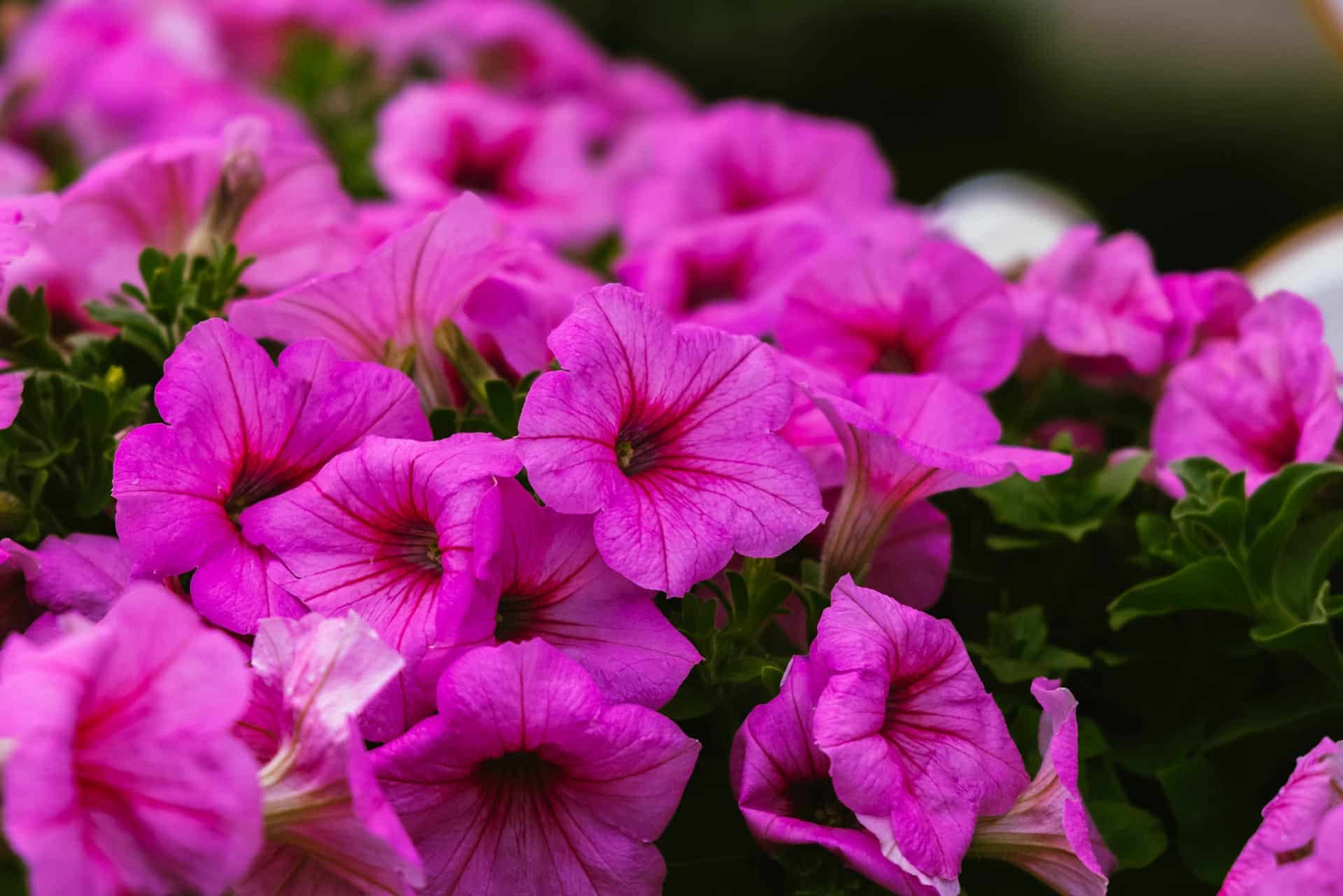
The History and Origins of Petunias
The name “petunia” is derived from the French word “petun,” which means tobacco. This is because petunias belong to the same family as tobacco plants, Solanaceae. Native to South America, petunias were first discovered by European explorers in the 16th century. They were brought back to Europe and quickly gained popularity due to their striking appearance.
In the 1800s, petunias were hybridized and cultivated into the varieties we know today. They have since become a staple in gardens and floral arrangements all over the world.
Petunia Flower Meaning: Colors
Like many other flowers, petunias come in a variety of colors, each with its own unique symbolism. Let’s take a look at the different meanings associated with petunias based on their colors.
Red Petunias
Red petunias are a popular flower known for their vibrant and eye-catching color. They have long been associated with passion, love, and desire, making them a perfect gift to express strong romantic feelings towards someone.
The color red has always been linked to intense emotions, particularly those of love and desire. It is a bold and powerful color that evokes strong feelings and captures attention. Red petunias, with their deep and rich hue, embody this passionate energy and serve as a symbol for the intensity of romantic love.
In many cultures, flowers have been used as a means of communication and expression. Each flower carries its own unique symbolism, and the red petunia is no exception. Its bright and fiery color represents the burning desire and intense love one feels towards another. By gifting someone with red petunias, you are conveying your strong and unwavering affection for them.
Moreover, petunias are also known for their delicate and alluring fragrance, which adds to their symbolism of love and desire. The sweet scent of these flowers can evoke memories and stir up emotions, making them a perfect gift for expressing heartfelt sentiments.
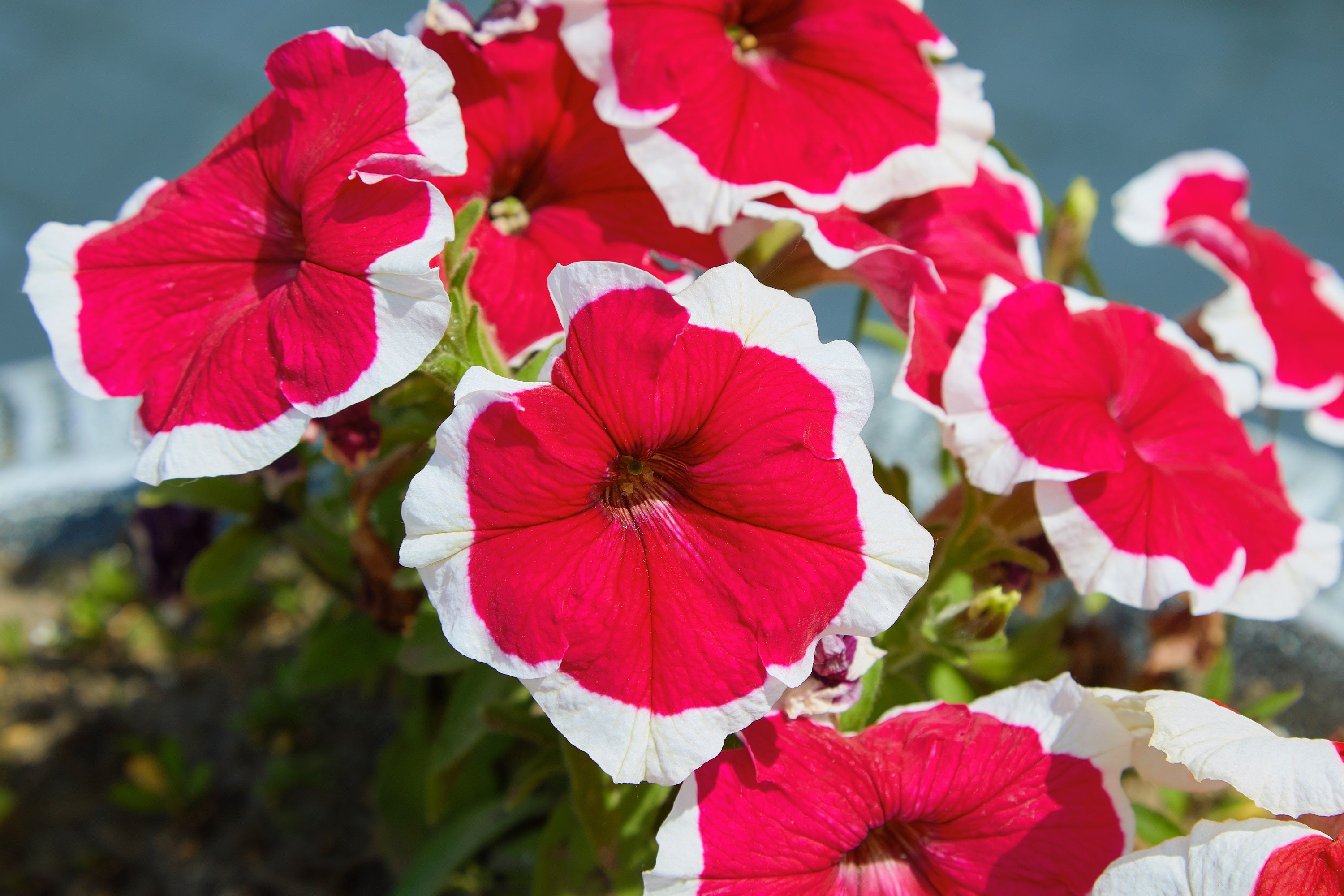
Red petunias are often given as gifts on special occasions such as Valentine’s Day, anniversaries, or birthdays. They are a popular choice among couples who want to express their deep love and passion for each other. These flowers are also commonly used in wedding bouquets and decorations, symbolizing the intense love and desire between the newlyweds.
Aside from romantic relationships, red petunias can also be given to express love and admiration towards family members and friends. They can serve as a thoughtful and meaningful gift to show appreciation and affection towards loved ones.
Red petunias hold a significant meaning when it comes to expressing strong romantic feelings. Their vibrant color, sweet fragrance, and cultural symbolism make them a perfect gift to convey passion, love, and desire towards someone special. So, the next time you want to express your intense emotions towards someone, consider gifting them with a bouquet of red petunias.
Pink Petunias
Pink petunias are a popular flower choice for many occasions, but they hold a special significance when it comes to motherhood. These delicate and beautiful flowers represent motherly love, grace, and gentleness, making them the perfect gift for mothers or mother figures.
The color pink is often associated with femininity, tenderness, and nurturing qualities, all of which are essential aspects of motherhood. Pink petunias, with their soft and delicate petals, embody these qualities perfectly. They are a symbol of the unconditional love that mothers have for their children and the gentle care they provide.
In addition to representing motherly love, pink petunias also symbolize grace. Grace is a quality that is often associated with mothers, as they gracefully navigate through the challenges of raising a child. It takes a lot of patience, understanding, and compassion to be a mother, and pink petunias capture this essence beautifully.
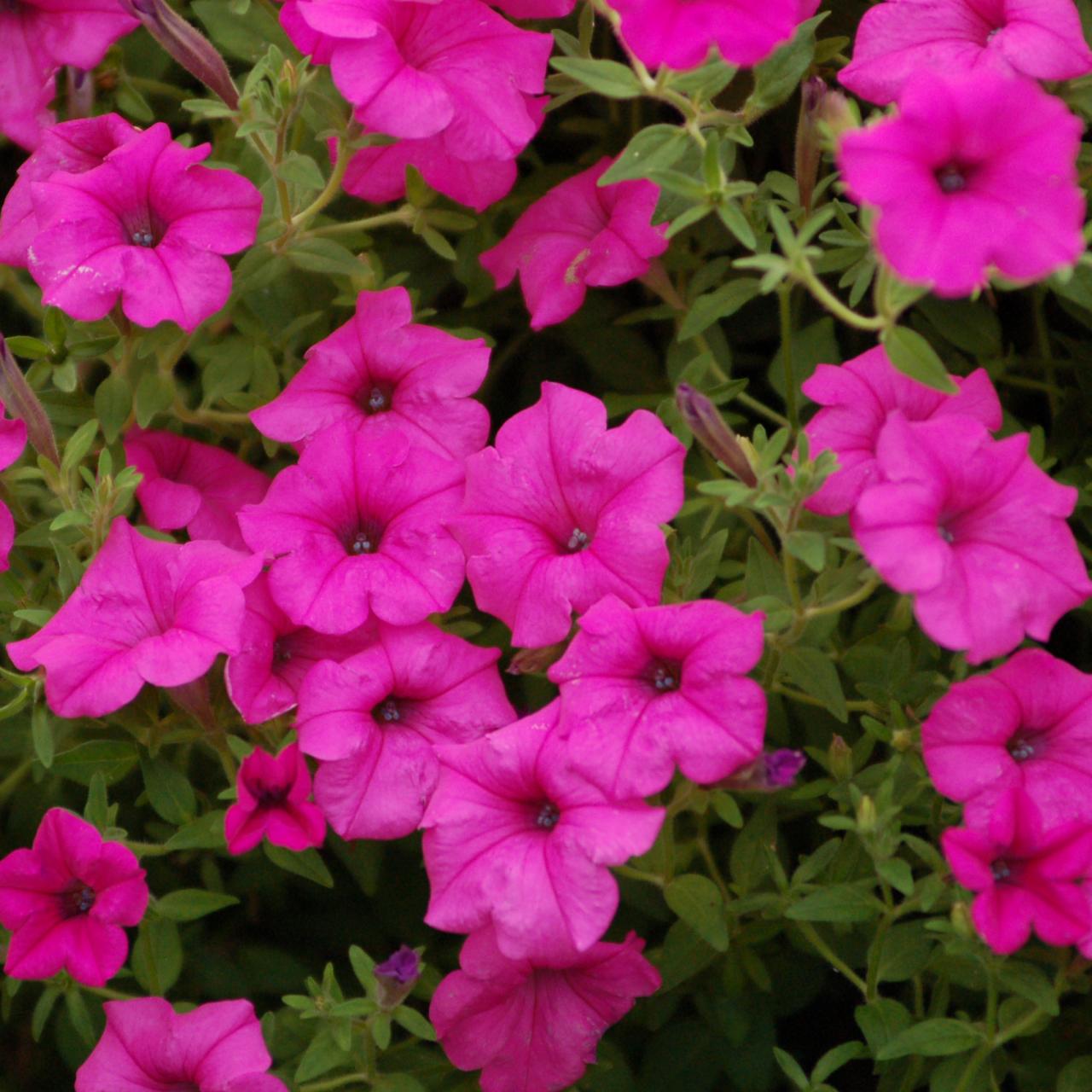
Furthermore, pink petunias also represent gentleness. Mothers are known for their gentle touch, both physically and emotionally. They have the ability to soothe and comfort their children with just a hug or a kind word. Pink petunias, with their soft and delicate appearance, reflect this gentle nature of mothers.
It is no surprise that pink petunias are often given as gifts to mothers or mother figures. They serve as a heartfelt expression of appreciation and gratitude towards these incredible women who have played such an important role in our lives. Whether it is Mother’s Day, a birthday, or just a simple gesture of thanks, pink petunias make a meaningful and thoughtful gift for any mother.
Moreover, the act of giving flowers to someone is a universal way of showing love and affection. By presenting pink petunias to a mother, we are not only acknowledging her love and grace but also expressing our gratitude for all that she has done for us. It is a small yet powerful gesture that can bring a smile to any mother’s face.
Pink petunias hold a special significance when it comes to motherhood. They represent the qualities of love, grace, and gentleness that are synonymous with being a mother. These flowers serve as a beautiful and meaningful gift to show appreciation and gratitude towards mothers or mother figures in our lives. So the next time you want to express your love and appreciation for a mother, consider giving her a bouquet of pink petunias.
Purple Petunias
Purple petunias are a popular flower choice for weddings and other formal events due to their symbolic meaning of charm, enchantment, and royalty. These beautiful flowers add a touch of elegance and sophistication to any occasion, making them a perfect choice for special celebrations.
The color purple has long been associated with royalty and nobility. In ancient times, purple dye was extremely rare and expensive, making it a symbol of wealth and status. This association with royalty has carried on throughout history, and purple is still often seen as a regal color. As such, purple petunias, with their rich and vibrant hue, are a perfect representation of this symbolism.
In addition to representing royalty, purple petunias also symbolize charm and enchantment. The word “charm” refers to something that is attractive and alluring, and these flowers certainly fit the bill. With their delicate petals and sweet fragrance, they have a captivating beauty that can enchant anyone who sees them. This makes them a popular choice for weddings, where couples want to create a romantic and charming atmosphere.
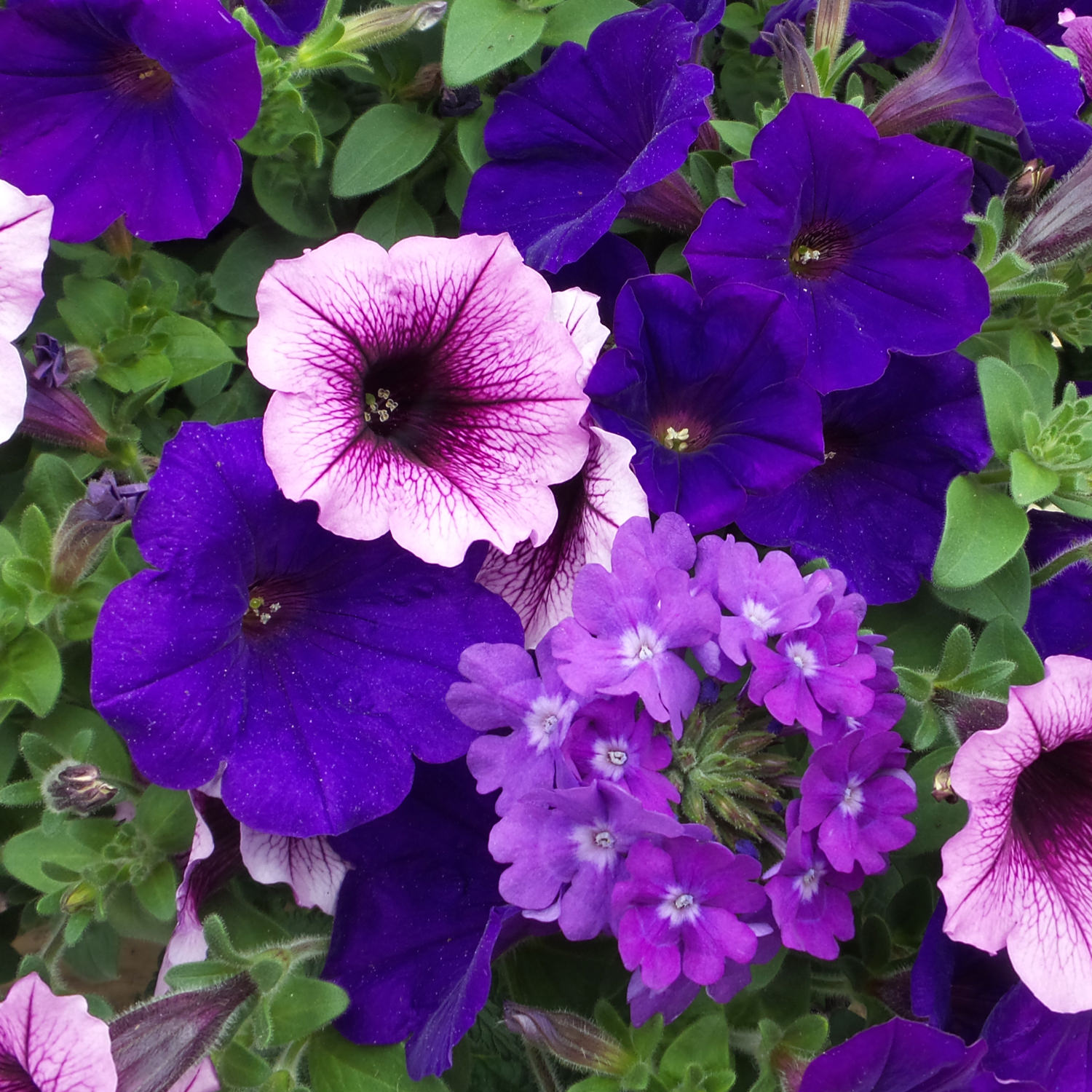
Furthermore, the enchanting qualities of purple petunias are also linked to their ability to bring joy and happiness. The color purple is often associated with creativity, imagination, and spirituality, evoking feelings of wonder and magic. When used in weddings and other formal events, these flowers can help create a sense of enchantment and make the occasion even more special and memorable.
The use of purple petunias in weddings and other formal events is also a nod to their historical significance. In Victorian times, flowers were often used to convey hidden messages and emotions, as people were not always able to express their feelings openly. Purple petunias were often given as a gift to show admiration and respect, making them a fitting choice for formal events where etiquette and tradition are highly valued.
Moreover, the elegant and sophisticated appearance of purple petunias adds a touch of refinement to any event. Their trumpet-shaped blooms and long, slender stems give them a graceful and delicate appearance that is perfect for formal occasions. They can be used in bouquets, centerpieces, and other floral arrangements to add a touch of class and sophistication to the overall decor.
Purple petunias are more than just beautiful flowers – they are rich in symbolism and meaning. Their association with charm, enchantment, and royalty makes them an ideal choice for weddings and other formal events. These flowers not only add a touch of elegance and sophistication to the occasion but also convey hidden messages of admiration and respect. Whether used as a standalone flower or combined with other blooms, purple petunias are sure to bring a sense of magic and wonder to any special event.
White Petunias
White petunias are a type of flowering plant that are known for their delicate and elegant appearance. They are often used in gardens, parks, and as decorative plants in homes. However, white petunias hold a deeper meaning beyond their aesthetic appeal.
In many cultures, white petunias represent purity, innocence, and spirituality. This symbolism is derived from the color white, which has long been associated with these qualities. White is often seen as a symbol of cleanliness, simplicity, and perfection. As such, white petunias are seen as a representation of these virtues.
One of the main reasons why white petunias are associated with purity is because of their color. The pure white petals of the flower are free from any blemishes or markings, giving them a pristine appearance. This is often seen as a reflection of the pure and untainted nature of the flower, making it a perfect symbol for purity.
Innocence is another quality that is closely tied to white petunias. The flower’s delicate and innocent appearance evokes feelings of youthfulness and naivety. This is further reinforced by the fact that petunias are often one of the first flowers to bloom in the spring, symbolizing new beginnings and the start of a new cycle.
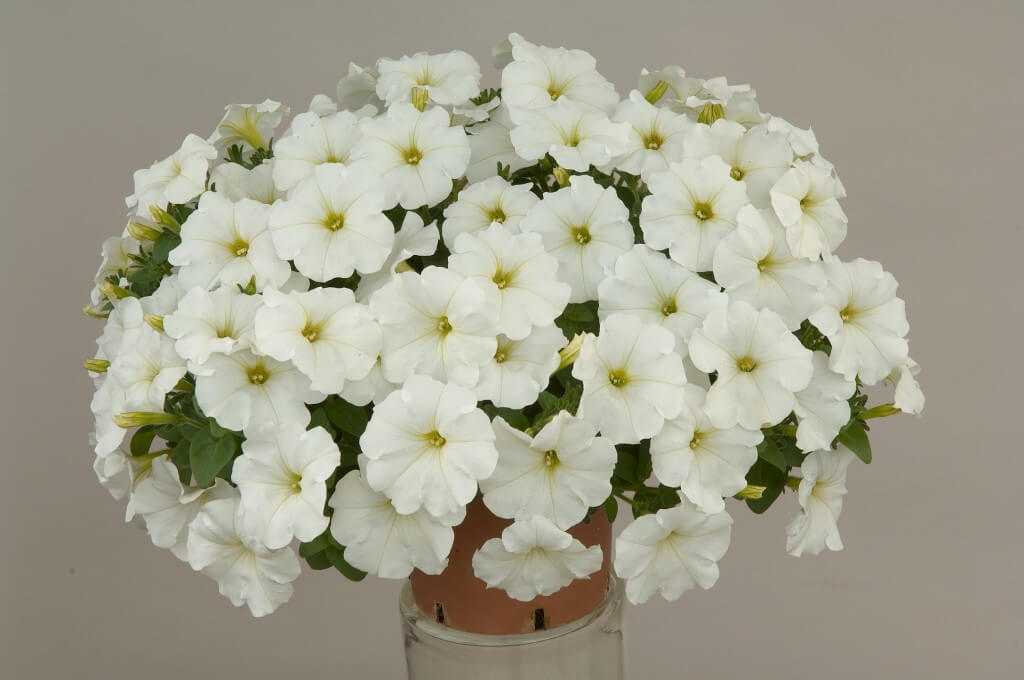
Spirituality is also a significant aspect of white petunias. In many religious traditions, white is seen as a sacred color that represents divinity and holiness. As such, white petunias are often used in religious ceremonies and rituals, such as weddings, baptisms, and funerals. Their presence adds a sense of purity and reverence to these occasions.
Furthermore, white petunias are a popular choice for bridal bouquets. This is because they not only symbolize purity and innocence, but they also add a touch of elegance and sophistication to the bouquet. The white petals of the flower create a beautiful contrast against the bride’s dress, making it a stunning addition to any wedding.
In addition to their symbolic meanings, white petunias also have practical uses. They are easy to grow and maintain, making them a popular choice for gardeners and landscapers. They also come in a variety of sizes and shapes, allowing them to be used in various ways, such as in hanging baskets, borders, and containers.
White petunias hold a significant meaning beyond their physical appearance. They represent purity, innocence, and spirituality, making them a popular choice for religious ceremonies and bridal bouquets. Their delicate and elegant nature adds a touch of beauty and grace to any setting, making them a beloved flower among many cultures.
Yellow Petunias
Yellow petunias are a popular flower that symbolizes happiness, joy, and friendship. These vibrant flowers are known for their bright yellow color and delicate petals, making them a perfect gift to bring a smile to someone’s face. They are often given as gifts to friends and loved ones to brighten their day and spread positivity.
The color yellow has long been associated with feelings of happiness and joy. It is a warm and cheerful color that is often used to represent sunshine, warmth, and optimism. Yellow petunias, with their bright and sunny hue, embody these positive emotions and are a perfect way to express happiness and joy to someone special.
Moreover, yellow petunias also symbolize friendship. The act of giving someone a bouquet of yellow petunias is a gesture of friendship and a way to show how much you value their companionship. In many cultures, the color yellow is also associated with friendship and is considered a symbol of loyalty, trust, and support. By gifting yellow petunias, you are not just giving a beautiful flower but also expressing your appreciation for the friendship you share with the recipient.
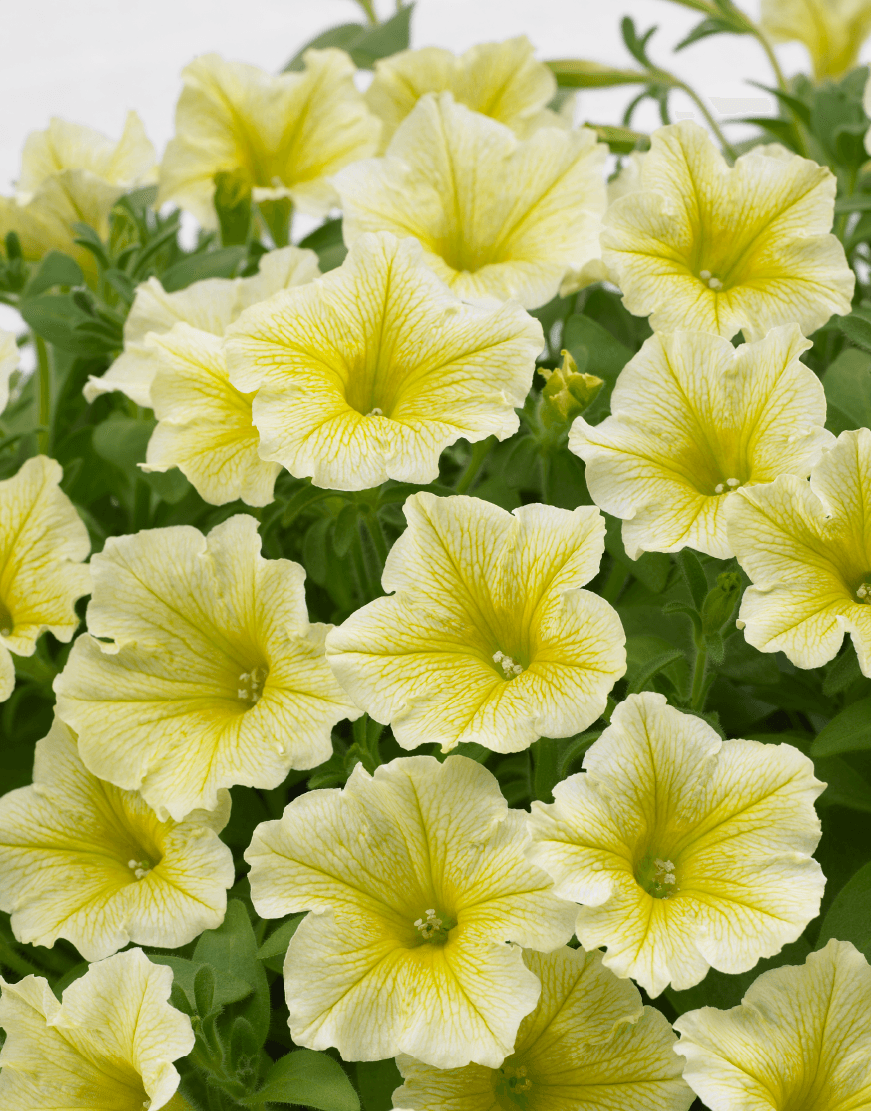
In addition to their symbolic meanings, yellow petunias are also known for their ability to uplift one’s mood and bring a sense of joy and positivity. The bright and cheerful color of these flowers can instantly lift one’s spirits and bring a smile to their face. This makes them a popular choice for gifts, especially when someone is going through a tough time or needs a little pick-me-up.
Furthermore, yellow petunias are also believed to have healing properties. In traditional medicine, the color yellow is associated with the solar plexus chakra, which is believed to be responsible for our emotional well-being. It is believed that looking at or being surrounded by yellow flowers, such as yellow petunias, can help balance this chakra and promote feelings of happiness and joy.
Yellow petunias are much more than just a beautiful flower. They hold deep symbolic meanings of happiness, joy, and friendship, making them a perfect gift to brighten someone’s day. Whether it is to celebrate a special occasion or simply to show someone you care, yellow petunias are a thoughtful and meaningful way to spread positivity and bring a smile to someone’s face.
Petunia Flower Meaning: in Different Cultures
Petunias have been cultivated and admired for centuries, and as a result, they have become deeply ingrained in various cultures and traditions. Let’s explore the symbolism of petunias in different parts of the world.
In Victorian England
During the Victorian era, flowers were not just used for their aesthetic beauty, but also as a means of communication. It was a time when openly expressing one’s emotions and feelings was considered improper, especially for women. As a result, people turned to the language of flowers, also known as floriography, to convey their true thoughts and sentiments.
One flower that held significant meaning during this time was the petunia. Its trumpet-like shape and vibrant colors made it a popular choice for gardens and bouquets. However, beyond its physical appearance, the petunia also had a deeper symbolic significance.
In Victorian floriography, the petunia was often associated with resentment and anger. This was due to its resemblance to a clenched fist, which was seen as a symbol of defiance and aggression. The flower’s name itself comes from the French word “petun,” which means “tobacco.” This further reinforced its association with bitterness and hostility, as tobacco was often used as a form of revenge or retaliation.
Moreover, the petunia’s strong scent was believed to ward off evil spirits, making it a popular choice for protection against negative energies. This added to its connotation of being a defensive and combative flower.
However, despite its negative associations, the petunia also held positive meanings. It was seen as a symbol of hope and determination, as it could withstand harsh weather conditions and still bloom beautifully. This resilience and ability to thrive in difficult circumstances made it a popular flower among the Victorians.
Furthermore, the petunia’s bright and cheerful colors, such as pink, purple, and white, were also seen as symbols of joy and happiness. This contrasted with its negative associations, showing that even in the face of adversity, there is always room for optimism and positivity.
In addition to its symbolism, the petunia was also highly valued for its medicinal properties. It was believed to have healing powers and was often used in herbal remedies for various ailments. This added to its reputation as a powerful and resilient flower.
During the Victorian era, flowers were not just decorative elements but also carried significant meanings and messages. The petunia, with its dual symbolism of resentment and hope, reflected the complex emotions and societal norms of the time. Its ability to withstand challenges and still bloom beautifully made it a beloved flower that continues to hold meaning and significance even today.
In Native American Culture
In Native American culture, petunias were highly revered for their healing powers. These beautiful flowers were not only used for decorative purposes, but also played a significant role in traditional medicine. The use of petunias in healing practices can be traced back to ancient times, where they were believed to possess magical properties that could cure various ailments.
One of the most common uses of petunias in traditional medicine was for treating respiratory issues. The flowers were dried and made into a tea, which was then consumed to alleviate symptoms of coughs, colds, and other respiratory problems. This was due to the belief that petunias had the ability to clear the airways and promote easier breathing. The tea was also used as a natural remedy for asthma and bronchitis.
Another common use of petunias in traditional medicine was for treating skin conditions. The flowers were crushed and applied topically to wounds, burns, and rashes. It was believed that the anti-inflammatory properties of petunias could help reduce swelling and pain, while the antibacterial properties could prevent infections and promote faster healing. Petunia tea was also used as a wash for skin irritations and allergies.
Aside from their medicinal uses, petunias were also seen as symbols of protection and strength in Native American culture. They were often used in rituals and ceremonies to ward off negative energies and bring good luck. The vibrant colors of petunias were believed to attract positive energy and protect against evil spirits. In some tribes, petunias were also used as offerings to the gods during important ceremonies and celebrations.
Moreover, petunias were also associated with love and romance in Native American culture. It was believed that the sweet fragrance of the flowers could enhance feelings of love and passion. Couples would often exchange petunias as a symbol of their affection for each other.
In addition to their medicinal and spiritual significance, petunias were also valued for their beauty and were often used in traditional crafts. The vibrant colors of the flowers were incorporated into beadwork, pottery, and other decorative items. Petunias were also used to create natural dyes for textiles, adding a touch of color and symbolism to traditional clothing.
Petunias held a special place in Native American culture due to their healing powers, protective qualities, and aesthetic appeal. They were not just seen as ordinary flowers, but rather as powerful tools that could bring physical, emotional, and spiritual well-being. Today, petunias continue to be cherished by many cultures for their beauty and therapeutic properties, reminding us of their enduring significance in the world of plants and medicine.
In Hinduism
Hinduism is one of the oldest and most diverse religions in the world, with over 1 billion followers. It is a religion that is deeply rooted in tradition and culture, and has a rich history of beliefs and practices. One of the key aspects of Hinduism is its reverence for various deities and gods, who are believed to have different powers and attributes.
One such deity is Lakshmi, who is considered to be the goddess of wealth, prosperity, and beauty. She is often depicted as a beautiful woman adorned with gold jewelry and surrounded by lotus flowers. In Hindu mythology, she is believed to be the consort of Lord Vishnu, one of the main deities in Hinduism.
Petunias, on the other hand, are a type of flowering plant that is native to South America. They are known for their vibrant colors and delicate petals, making them a popular choice for gardens and flower arrangements. In Hinduism, petunias hold a special significance as they are associated with the goddess Lakshmi.
According to Hindu beliefs, offering petunias to the goddess Lakshmi can bring good luck and abundance into one’s life. This is because petunias are believed to possess qualities that are similar to those of the goddess herself. Just like how Lakshmi is associated with wealth and prosperity, petunias are seen as symbols of abundance and growth.
Furthermore, the vibrant colors of petunias are also symbolic in Hinduism. The color yellow, which is commonly found in petunias, is associated with happiness, positivity, and good fortune. By offering petunias to the goddess Lakshmi, it is believed that one can attract these positive energies into their life.
In addition to their association with Lakshmi, petunias are also linked to another Hindu deity, Lord Ganesha. Lord Ganesha is known as the remover of obstacles and is often worshipped before starting any new venture or endeavor. Petunias are believed to be one of his favorite flowers, and offering them to him can bring success and prosperity in one’s endeavors.
In Hinduism, the act of offering flowers to deities is known as “puja” and is an important part of worship. It is believed that by offering flowers, one is showing their devotion and respect towards the deity. In the case of petunias, offering them to Lakshmi is seen as a way of seeking her blessings and inviting her into one’s life.
Petunias hold a special place in Hinduism as they are associated with the goddess Lakshmi, who is revered as the embodiment of wealth, prosperity, and beauty. By offering petunias to her, it is believed that one can attract good luck and abundance into their life. This practice highlights the deep connection between nature and spirituality in Hinduism, where even something as simple as a flower can hold great significance.
In Mexico
In Mexico, petunias hold a unique and significant meaning in the culture. These beautiful flowers are often associated with death and mourning, and are commonly seen planted in cemeteries and used in Day of the Dead celebrations. This association is deeply rooted in the country’s history and traditions.
One of the main reasons why petunias are linked to death and mourning in Mexico is because of their dark colors. These flowers come in a variety of shades, including deep purple, burgundy, and black. In Mexican culture, these colors are often associated with death and the afterlife. They represent the darkness and mystery that surrounds death, making them a fitting choice for funeral arrangements and cemetery decorations.
Additionally, the trumpet-like shape of petunias is also believed to contribute to their association with death. The shape of the flower resembles a funeral bell, which is often rung during funeral processions and services. This resemblance further solidifies the connection between petunias and death in the minds of Mexicans.
The use of petunias in Day of the Dead celebrations also plays a significant role in their association with death and mourning. This annual holiday, celebrated on November 1st and 2nd, is a time when families gather to honor and remember their deceased loved ones. During this time, it is customary to decorate altars and graves with offerings and symbols that represent death and the afterlife. Petunias, with their dark colors and trumpet-like shape, are a perfect addition to these displays and are often used to adorn altars and gravesites.
Furthermore, the symbolism behind petunias goes beyond just their appearance. These flowers are also known for their resilience and ability to thrive in harsh conditions. In Mexico, where death is an inevitable part of life, this quality is highly valued and admired. It serves as a reminder that even in the face of death, life can still bloom and flourish.
The association of petunias with death and mourning in Mexico is a result of various factors, including their dark colors, trumpet-like shape, and use in Day of the Dead celebrations. These flowers hold a deep cultural significance and serve as a reminder of the cycle of life and death. They are a beautiful and poignant symbol that honors the memory of those who have passed on and brings comfort to those who are grieving.
Conclusion
Petunias are more than just pretty flowers; they hold deep meanings and symbolism that can add beauty and positivity to our lives. Whether you want to express your feelings towards someone or simply brighten up your living space, petunias are a perfect choice. So next time you see these lovely blooms, remember their significance and the joy they bring.

I am Patricia Mann, an experienced professional in the art of naming children. With a wealth of knowledge in the field of baby names, I aim to assist parents in choosing a meaningful and beautiful name for their little ones. My expertise lies in the Name Meaning section, where I delve deep into the origins and significance of names, providing valuable insights that I hope will be beneficial for parents.
Understanding the profound impact a name can have on a child’s life, I strive to offer comprehensive guidance. The Name Meaning section is not just a repository of information but a resource where parents can discover the rich tapestry of meanings associated with different names. It is my belief that a child’s name is more than just a label; it encapsulates the desires, hopes, and love of the parents.
In this journey of baby naming, my goal is to make the process enjoyable and meaningful for parents, ensuring that the chosen name resonates with the family’s values and cultural background. I invite you to explore the Name Meaning of Impeccable Nest section as we embark on the delightful and important task of naming the newest members of your family.
